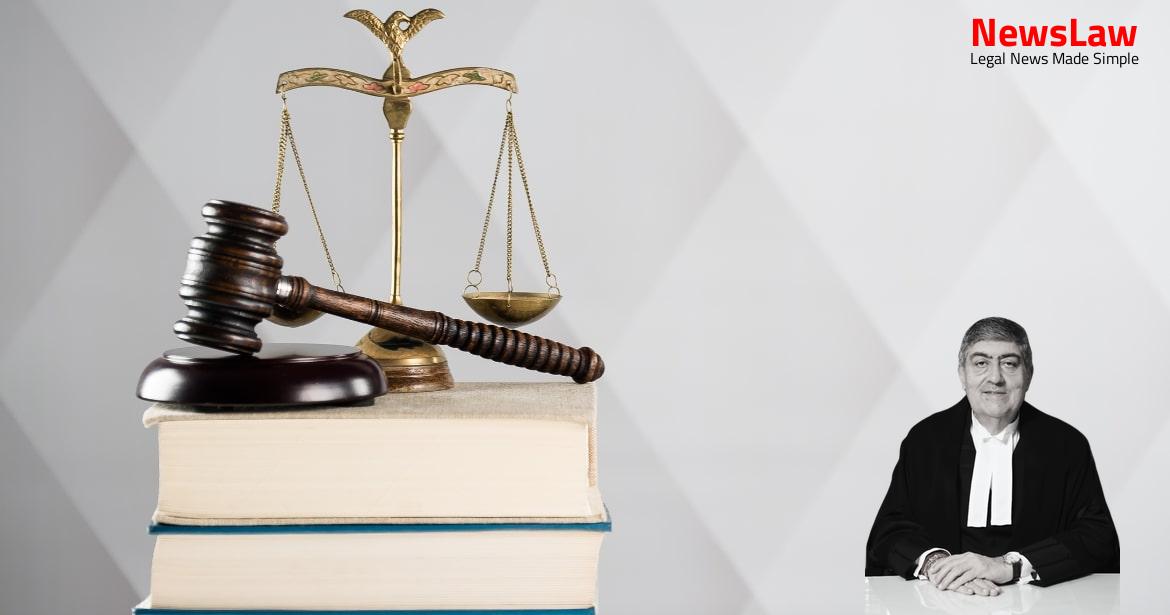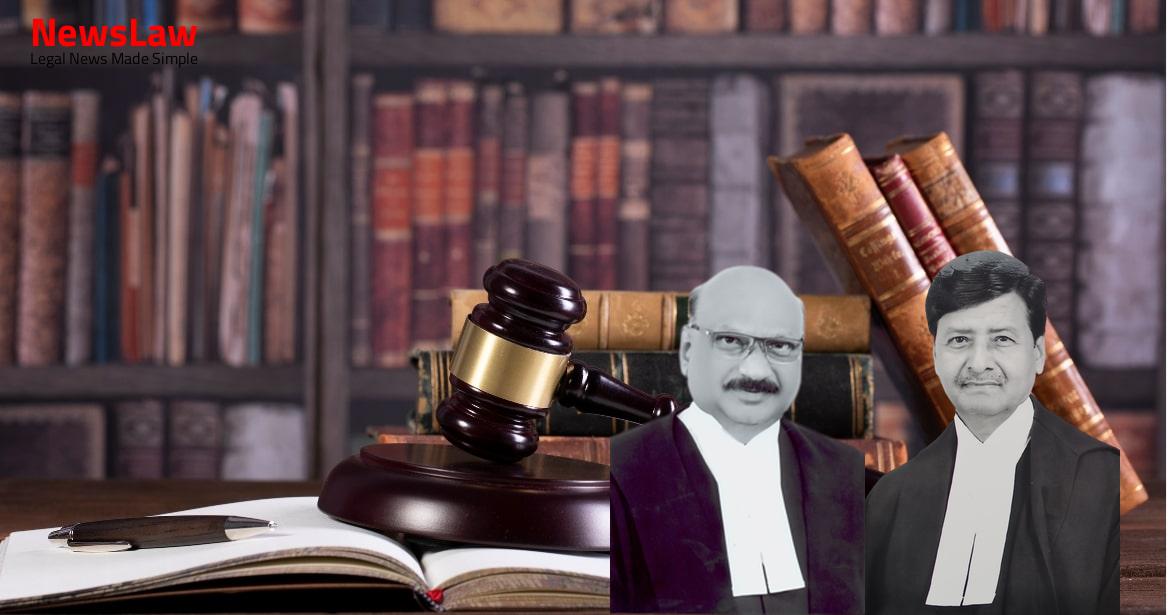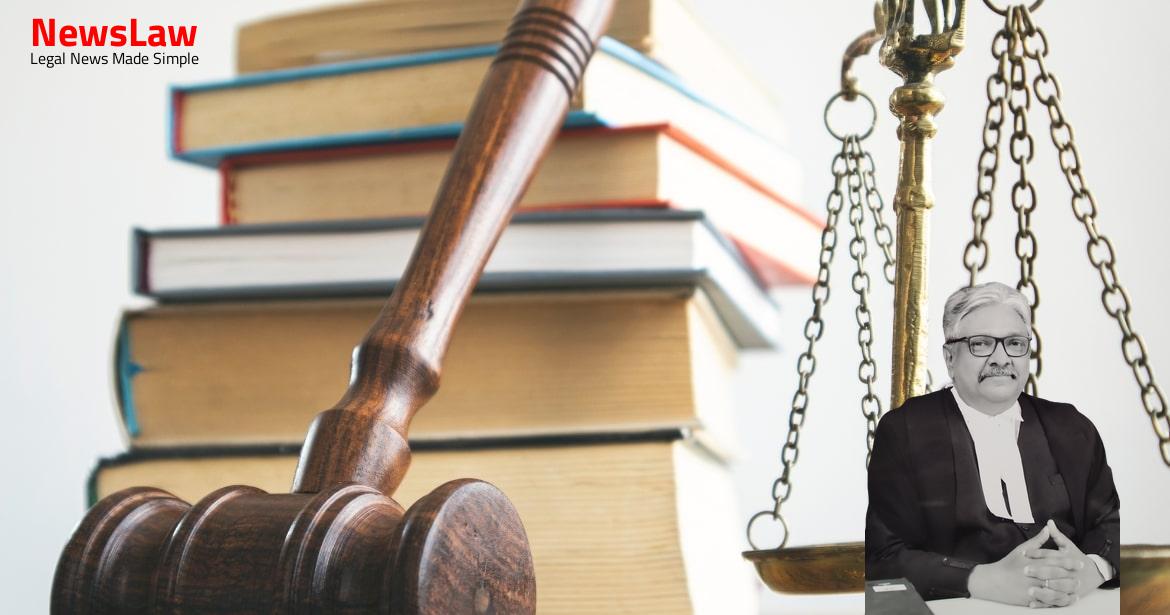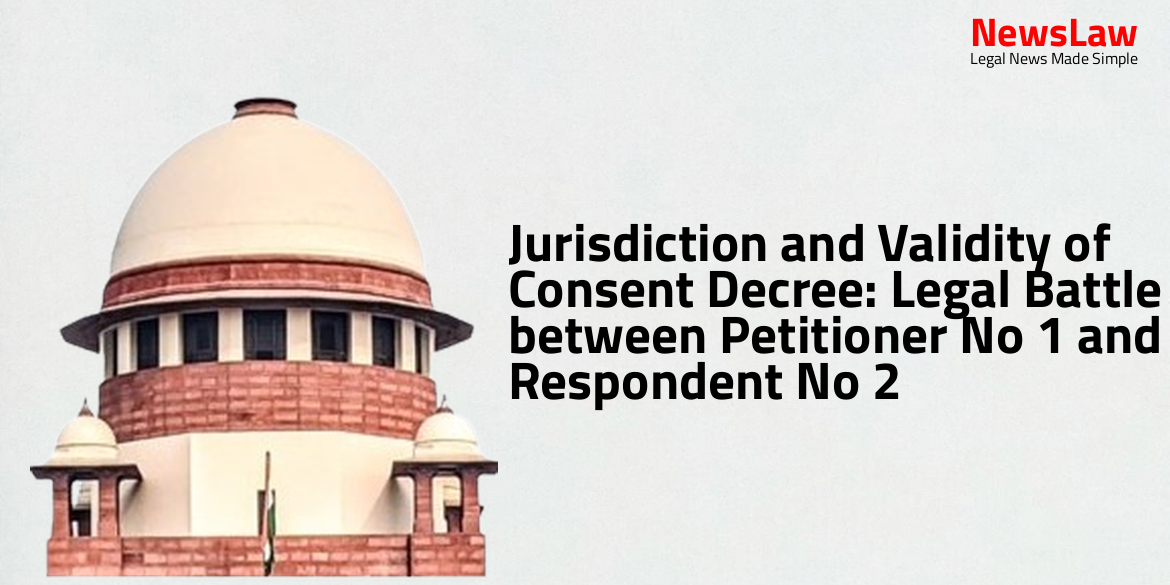The case of State of U.P. v. U.P. Avas Evam Vikas Parishad revolves around a dispute regarding employee service conditions. The State of U.P., as the petitioner, challenged the High Court’s judgment in favor of the employees of the Parishad. The issue at hand involves the State Government’s jurisdiction to issue directions on pension and gratuity schemes for the Parishad employees. This case has significant implications for labor rights and governmental authority over public corporations.
Facts
- The State Government decided to implement 6 Pay Commission Report w.e.f. 01.2006 based on the U.P. Pay Committee 2008 recommendations.
- The High Court’s judgment on 16.01.2009 allowed the writ petition, succeeding in favor of the employees.
- A mandamus was issued to grant arrears of salary, fix pension/family pension, and release gratuity for employees of the Parishad from 01.2006 to 13.01.2010.
- The Division Bench held that the exclusionary part of the Government Order dated 08.12.2008 exempting public corporations is inapplicable to employees of the Parishad.
- The Division Bench affirmed the judgment of the High Court, ordering the implementation of the pension/family pension and gratuity scheme by the Board.
- A Special Appeal filed by the State of U.P. challenging the High Court’s judgment was dismissed on 26.11.2018.
- The Government order dated 13.09.2005 and 12.07.2007 were quashed, mandating the implementation of the Board’s pension/family pension and gratuity scheme.
- The earlier orders of the State Government were set aside in the Preetam Singh’s case.
- The employees governed by the Notification dated 19-5-2009 will be governed by its provisions.
- This Court dismissed the writ petition on 23.09.2014 regarding pension/family pension and gratuity scheme.
- The Division Bench of the High Court allowed the writ petitions in its judgment on 16.03.2018.
- Writ petitions filed by employees of U.P. Awas Evam Vikas Parishad seeking re-determination of salary and pensionary benefits as per 6th Pay Commission Recommendations.
- Regulation framed by the Board on 19.05.2009 regarding Pension/Family Pension and Gratuity.
- State Government sanctioned revised pay structure, pay band, and grade pay based on recommendations of 7th U.P. Pay Committee 2008.
- Orders issued by State Government and Housing Commissioner in 2009 and 2010 regarding revised pay structure and allowances for employees of the Board.
- Order dated 15.09.2011 clarified that arrears of revised pay for the period up to 13.01.2010 not admissible to Board employees.
- Consequential orders issued by the Board and Government in response to Court judgements.
- Specific prayers made in the petitions related to re-determination of salary, application of Government Order No.1508 dated 08.12.2008, and payment of arrears and benefits as per 6th Pay Commission Recommendations.
- Prayers in the petitions also include quashing of certain orders, implementation of Family Pension and gratuity Scheme, and other appropriate directions from the Court.
Also Read: Interpretation of Lease Agreement and Compulsory Registration
Arguments
- The State Government has jurisdiction to issue directions regarding the service conditions of employees and officers of the Board.
- The view in Preetam Singh’s case needs to be reconsidered.
- The question of the State Government’s power to issue directions to the Parishad with respect to employee service conditions was answered in Preetam Singh’s case.
- The main issue in Preetam Singh’s case was the State’s powers to issue directions on Board employee service conditions.
- Section 92 of the Act specifies that directions must relate to the functions of the Board listed in Section 15, not service conditions.
- Non-consideration of a specific argument not raised does not warrant a reference to a larger Bench.
- The State, in the Civil Appeal of Preetam Singh, referenced Section 94(2)(nn) of the 1965 Act.
- The State Legislature has the power to frame laws on public services and executive power on all subjects where it has legislative power.
- The State can exercise its executive power regarding public services, including service conditions of employees.
- The functions of the Board as per Section 15 are extensive, with additional functions in the Act, including the power to make regulations.
- The view expressed in Preetam Singh’s case in paragraph 16 is considered per incuriam as it did not take into account relevant statutory provisions of Section 1965 Act.
- Sections 8, 92, and 94(2)(nn) empower the State Government to control appointments, make rules, and regulate service conditions of Board employees.
- The State Government had jurisdiction to issue directions regarding pension and gratuity schemes under the Uttar Pradesh State Control Over Public Corporation Act, 1975.
- The High Court’s judgment on 16-1-2009 was challenged, arguing that the scheme could not be implemented without express approval by the State Government.
- Section 94(2)(nn) empowers the State to make rules on matters where the Board can make regulations, including service conditions of officers and servants.
- The judgment did not consider the power of the State Government to make rules related to service conditions of Board employees, as conceded by Section 94(2)(nn).
Also Read: Enhancing Compensation and Modifying Sentences: A Legal Analysis
Analysis
- The conditions of service of the employees do not constitute the functions of the Vikas Parishad.
- The State Government can issue directions on question of policy only with regard to the specified functions as contemplated by Section 15 of the 1965 Act.
- The State has the right to issue directions only in respect of the functions assigned to the Vikas Parishad under Section 15 of the 1965 Act.
- The State Government has no jurisdiction to issue directions regarding pension/family pension and gratuity of the employees of the Parishad as it is not considered a function of the Board.
- The Board, under Section 8(2), has the authority to lay down terms and conditions of appointment for officers and servants.
- The expression ‘subject to the provisions of the Act, rules and regulations’ is crucial as it amplifies and adds other functions to the Board as provided in the Act, rules, and regulations.
- The State Government’s directions on questions of policy must be related to the discharge of functions of the Board as stipulated in the Act.
- The State Government can regulate the terms and conditions of officers and employees of the Board through executive orders if there are no existing rules or regulations.
- In Preetam Singh’s case, relevant provisions like Section 8, Section 95(1)(f), and Section 92 were not considered which indicate that conditions of service of the employees are indeed a function of the Board.
- The Act empowers the State Government to issue directions to the Vikas Parishad under specified circumstances, especially concerning appointment of officers and servants.
- Functions of the Vikas Parishad are limited to those stipulated in Section 15 of the 1965 Act.
- The functions of the Board include framing and executing housing and improvement schemes, coordinating housing activities, providing technical advice for projects, and managing properties transferred to it.
- The Board can make regulations for the conditions of service of its officers and servants, subject to State Government rules.
- Section 95 empowers the Board to frame regulations in line with its functions under Section 15.
- State Government rules have overriding effect over Board regulations.
- The State Government has legislative competence and executive power regarding service conditions of Board officers and servants.
- The appointment of officers and servants is also a function of the Board as per Section 8 of the Act.
- The executive power of the State extends to matters within List II of the Seventh Schedule of the Constitution.
- Executive function involves determining policy and executing it.
- The State Government can provide directions to the Board on policy matters, guiding its functions.
- In the judgment of Preetam Singh’s case, it was established that the State Government can issue directions on policy matters to all Public Corporations in Uttar Pradesh as long as they are related to the discharge of functions.
- The executive function includes determining policy and carrying it out, which encompasses initiating legislation, maintaining order, promoting social and economic welfare, directing foreign policy, and overseeing the general administration of the State.
- The power to make laws regulating recruitment and service conditions of public servants rests primarily with the legislature, i.e., Parliament or State Legislature Assembly.
- When this power is vested in the State Legislature, it can exercise executive power by issuing orders under Article 162.
- Regulations from 2005 regarding pension/family pension and gratuity schemes were relied upon in the Preetam Singh case, emphasizing that they apply to officers and servants of the Government as well as the Board.
- The Regulations 2009 mentioned provisions for applying Government orders related to pension/family pension and gratuity to officers and employees of the Board.
- The judgment in Preetam Singh’s case is being reconsidered concerning aspects related to the functions of the U.P. Avas Evam Vikas Parishad and the service conditions of its officers and employees.
- A larger Bench is proposed to consider specific questions, including the correctness of the judgment in Preetam Singh’s case regarding the functions of the Board and the service conditions of its employees.
Also Read: Exemption from Property Tax for Central Government-owned Buildings
Decision
- The impugned orders dated 13.09.2005 (Annexure – 14) and the order dated 12.07.2007 (Annexure – 18) related to U.P. Evam Avas Vikas Parishad are hereby quashed.
- A writ of mandamus is issued directing U.P. Avas Evam Vikas Parishad to implement its pension/family pension and gratuity scheme as per the regulations framed on 05.11.1997.
- No costs are awarded in this case.
- The denial of retiral benefits was a consequence of interim orders passed by the Court at the behest of the State of Uttar Pradesh.
- Papers of the cases will be placed before the Hon’ble Chief Justice for constituting a larger Bench.
Case Title: STATE OF U.P. Vs. VIRENDRA KUMAR (2020 INSC 158)
Case Number: C.A. No.-006622-006623 / 2022



